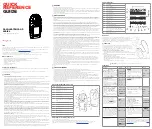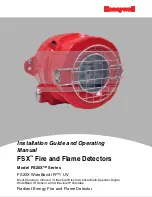
14
GROUND BALANCING
4.
With a little practice, you should be able to ground
balance quickly by “bobbing” the coil up and
down in a continuous movement as you adjust the
GROUND control with your thumb.
NOTES:
1.
If you get an audio response as you first lower the coil with
the GROUND control at 10, you’re probably over a piece of
metal. Move and try again.
2.
lf you get a sudden bell tone, not preceded by an increasing
audio response, you’re probably in some very highly
mineralized soil or sand. Instead of lowering the coil to an inch
or two above the ground (as in step 2 above), stop just before
you hear the bell tone and ground balance as instructed.
Maintain that coil height as you search.
3.
If you don’t get an audio response, or if the hum stays the
same no matter where you set the GROUND controls as
you bob the coil up and down, you’re probably in an area
where there’s very little ground mineralization. Just leave the
GROUND control at “10” and begin searching.
4.
Recheck your ground balance occasionally.
27
TARGET RECOVERY
Once you’ve identified and pinpointed a target, your objective
is to recover it quickly and neatly, leaving virtually no trace of your
excavation. There are almost as many ways to do this as there are
treasure hunters. Whatever works for you is good enough as long
as you don’t break any laws, leave uncovered holes or damage
the environment either on land or underwater.
Generally speaking, divers and beachcombers do little, if any,
damage to the environment while recovering small targets.
However, if you plan to use your CZ-21 on lawns or in parks, your
target-recovery method can be very important.
POINTS TO REMEMBER
1.
When in doubt, dig. If your CZ-21 can’t quite decide
whether a target is good or bad, dig it up.
2.
Good things often come in two’s. Or even three’s.
Once you’ve recovered a good target, always
recheck the hole for a second signal and carefully
search the immediate area by walking slowly
around the hole two or three times, overlapping your
sweeps in an ever-widening circle.
Always dig every
suspicious sound in the vicinity of a good find.
3.
Recheck your hole even if your find was trash. Good
targets are often found beneath bad ones.
Whichever method you choose, remember that responsible treasure
hunters take pride in their ability to leave soil and vegetation intact
and undamaged. If you don’t want to see your right to treasure
hunt restricted or even eliminated by government legislation, fill
those holes and leave your hunting areas in better shape than
when you arrived!







































